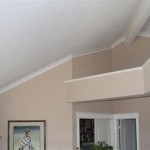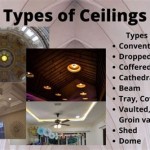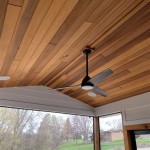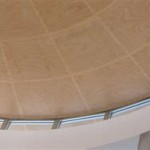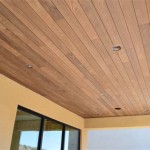What Is a Raised Ceiling?
A raised ceiling, also known as a dropped ceiling or suspended ceiling, is a secondary ceiling that is installed below the original ceiling of a room. It is typically made of lightweight materials such as drywall, acoustic tiles, or metal panels and is suspended from the original ceiling by a grid of metal or wood supports. Raised ceilings are commonly used in commercial and institutional buildings, but they can also be found in residential homes.
Benefits of Raised Ceilings
Raised ceilings offer several benefits, including:
- Improved acoustics: Raised ceilings can help to reduce noise levels in a room by absorbing sound waves. This makes them ideal for use in noisy environments such as offices, schools, and hospitals.
- Concealed services: Raised ceilings can be used to conceal unsightly mechanical, electrical, and plumbing services. This can improve the aesthetics of a room and make it easier to maintain.
- Increased flexibility: Raised ceilings can be easily modified to accommodate changes in the layout of a room. This makes them ideal for use in spaces that are subject to frequent reconfiguration.
- Energy efficiency: Raised ceilings can help to improve the energy efficiency of a building by reducing heat loss and gain. This can lead to lower energy bills.
Types of Raised Ceilings
There are several different types of raised ceilings, each with its own unique advantages and disadvantages. The most common types include:
- Drywall ceilings: Drywall ceilings are made of gypsum board panels that are attached to a metal or wood grid. They are a popular choice for raised ceilings because they are relatively inexpensive and easy to install.
- Acoustic tile ceilings: Acoustic tile ceilings are made of perforated mineral fiber tiles that are suspended from a metal grid. They are designed to absorb sound waves, making them ideal for use in noisy environments.
- Metal panel ceilings: Metal panel ceilings are made of thin metal panels that are suspended from a metal grid. They are durable and easy to maintain, making them a good choice for areas that are subject to heavy use.
Installation of Raised Ceilings
Raised ceilings are typically installed by a qualified contractor. The process begins with the installation of a grid of metal or wood supports. The grid is then used to suspend the ceiling panels. The panels are typically attached to the grid using clips or screws.
Maintenance of Raised Ceilings
Raised ceilings are relatively easy to maintain. The panels can be cleaned with a damp cloth or sponge. If a panel is damaged, it can be easily replaced.
Conclusion
Raised ceilings are a versatile and functional way to improve the appearance and functionality of a room. They offer a number of benefits, including improved acoustics, concealed services, increased flexibility, and energy efficiency. If you are considering installing a raised ceiling in your home or office, be sure to consult with a qualified contractor to discuss your options.

All You Need To Know About Tray Ceilings Bob Vila

Planning A Vaulted Ceiling Everything You Need To Know Checkatrade

Differences Between Vaulted Ceilings And Cathedral

Vaulted Ceilings 101 The Pros Cons And Details On Installation Bob Vila

Vaulted Ceilings 101 History Pros Cons And Inspirational Examples

The 12 Diffe Types Of Ceilings Elevate Your Home Today

Vaulted Ceilings Vs Cathedral Remodeling Consultants

Cathedral Ceilings Vs Vaulted

Ceiling Styles What Are Your Choices America S Best House Plans Blog

What Is A Vaulted Ceiling Pros And Cons Of Ceilings
Related Posts

